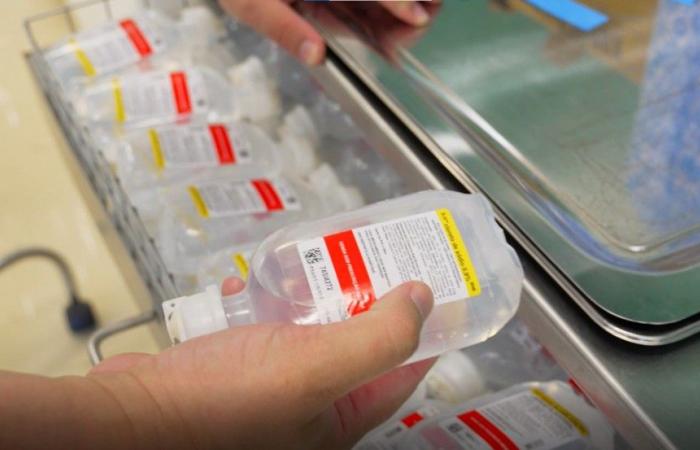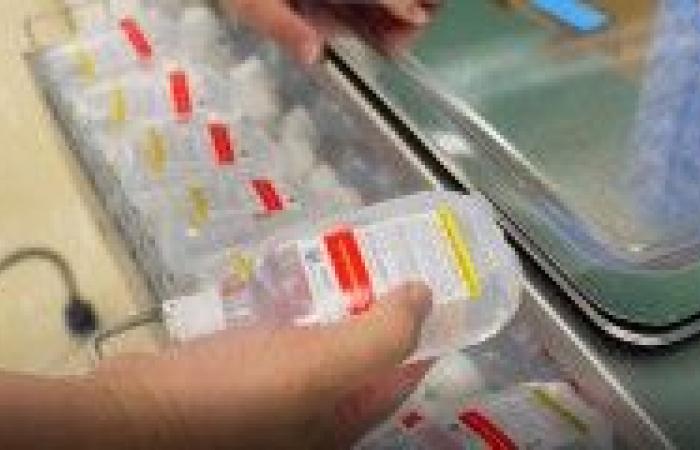Provide agility and support to healthcare professionals. With this objective, Blumenau City Hall, through the Health Promotion Secretariat (Semus), adopted the dengue clinical management protocol created by the State. The strategy will give professionals the opportunity to act more assertively in classifying the user and deciding on treatment. Blumenau already has a management protocol, but the application helps and speeds up decision-making.
As announced by the State, the application allows the identification of the stage of the disease and treatment of each patient through characteristics, signs and symptoms. The risk classification groups are A, B, C and D, and they differ according to the symptoms, warning signs and social and demographic characteristics of the individuals.
The Secretary of Health Promotion, Marcelo Lanzarin, says that the adoption of a clinical management protocol for dengue by Blumenau is a significant step in the fight against the disease, as the tool helps professionals in what to do in cases of suspected dengue just filling in the data in the App. “The measure reflects a joint effort to standardize and improve the quality of care for patients who seek our health units.”
For the person responsible for regulatory management, Jaqueline Mocelin, the implementation of this protocol in Blumenau aims to unify care for dengue patients. “Adherence will improve the effectiveness of treatment and will contribute to reducing morbidity and mortality associated with the disease. Furthermore, it reinforces the need for an integrated approach, which combines clinical management with vector control measures and education and prevention actions in the community.”
This Wednesday, the 3rd, Blumenau recorded 18,272 probable cases and six deaths.
Signs and symptoms
The first manifestation of dengue is high fever (39° to 40°C) with an abrupt onset, lasting two to seven days, associated with headache, weakness, pain in the body, joints and back of the eyes. Spots on the body are present in 50% of cases, and can affect the face, trunk, arms and legs. Loss of appetite, nausea and vomiting may also be present.
Fighting dengue in Blumenau
Hydration points
As a way of expanding care for patients with the disease, more than 500 hydration points were structured and expanded in the city’s health units. The access route is always the user’s reference health center.
Monitoring Center
Just like during the Covid pandemic, Blumenau City Hall activated a Monitoring Center with 12 professionals prepared to deal with probable cases of dengue in the city and monitor progress in curing the disease. The service operates from Monday to Friday, from 8am to 5pm, with the aim of early detection of signs of warning or serious symptoms, and also to monitor the control blood count. The Center is located at the SUS Technical School (ETSUS) and service is actively provided over the telephone. It is worth remembering that the team will prioritize cases with associated comorbidities and the patient will only be discharged from the Center after medical evaluation.
Dengue care center
To guarantee care for all patients and assist in the reception of health units and as a backup for hospitals, the Dengue Care Center (CAD) was created in Blumenau. More than 5,060 consultations were carried out at the site, which received improvements. The space now has a comfortable and restricted infusion space. There are 60 seats available to the population who need to stay more than 5 hours at the Center for the administration of intravenous and subcutaneous medications.
Both the CAD and the infusion space are located on Furb’s Campus 3, at Rua São Paulo, 2,171. The working hours of the multidisciplinary team of 20 people – made up of doctors, nurses and nursing technicians – take place in an open door format, seven days a week, including holidays, with extended hours from 7am to midnight.
Purchase of sprayers
Starting this week, the dengue combat team will have three more sprayers. The acquisition will expand and optimize the agents’ area of activity.
Collection of materials and debris
Endemic agents continue to inspect homes, warehouses, vacant lots and commercial establishments to look for mosquito outbreaks, but the population can also report places with possible outbreaks. Just contact the dengue combat program, through OuvidorSUS, on 156 (option 4) or via WhatsApp (47) 3381-7770. Service takes place from Monday to Friday, from 8am to 12pm and from 1pm to 5pm.
Depending on demand, in addition to the intensive work of endemic disease agents, teams from the Secretariat of Conservation and Urban Maintenance (Seurb) and the Autonomous Municipal Water and Sewage Service (Samae) are called to collect materials and debris in specific locations.
The disposal of white goods and unusable furniture can also be requested by the population through the Samae Solid Waste Center, located at Rua Engenheiro Udo Deeke, 430 – behind the Aterro Terminal. On site, the team provides the correct destination for each type of waste. The service has no cost. More information can be obtained directly by calling 115.
Communications advisor: Elaine Malheiros
posted on 04/03/2024 14:57 – 16 views
Photos
Tags: Blumenau adopts dengue clinical management protocol created State
--






